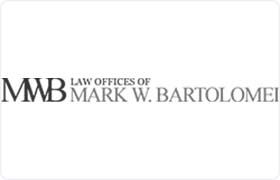Leicester Child Custody Lawyer, Massachusetts
Sponsored Law Firm
-
 x
x

Click For More Info:
-
Law Offices of Mark W. Bartolomei
51 Union Street Suite G10 Worcester, MA 01608» view mapDivorce & Family More Than 20 Years of Dedicated Service
Worcester divorce and bankruptcy attorney for more than 20 years.
800-931-6101
Includes: Guardianships & Conservatorships, Custody & Visitation
Heather O’Connor
Child Support, Divorce, Child Custody, Family Law, Alimony & Spousal Support
Heather O’Connor has been described as one of the nicest people you will ever meet, until you are an opposing party in the courtroom; she then puts ... (more)
Dahlia Habashy Bonzagni
Divorce & Family Law, Child Custody, Child Support
Status: In Good Standing Licensed: 13 Years
 Mark Bartolomei Worcester, MA
Mark Bartolomei Worcester, MA AboutLaw Offices of Mark W. Bartolomei
AboutLaw Offices of Mark W. Bartolomei Practice AreasExpertise
Practice AreasExpertise

